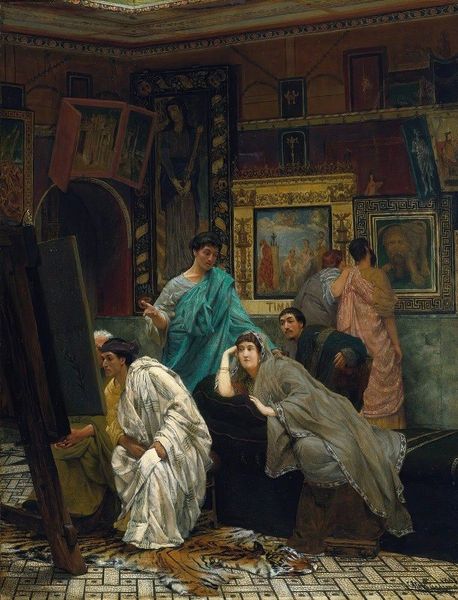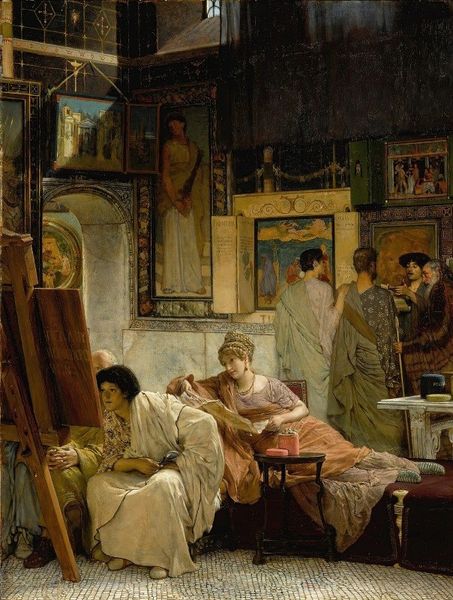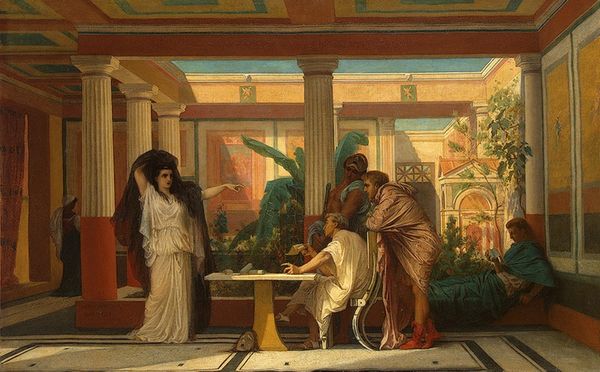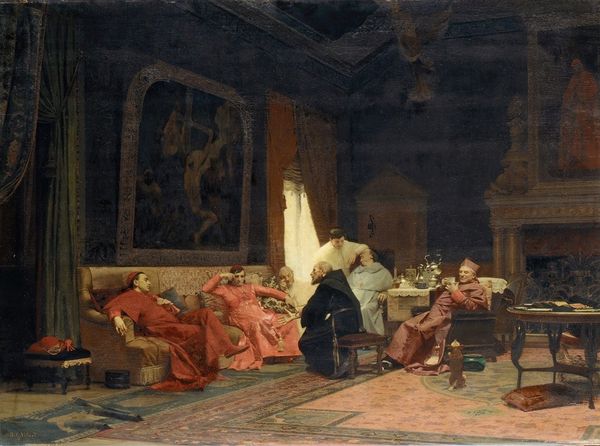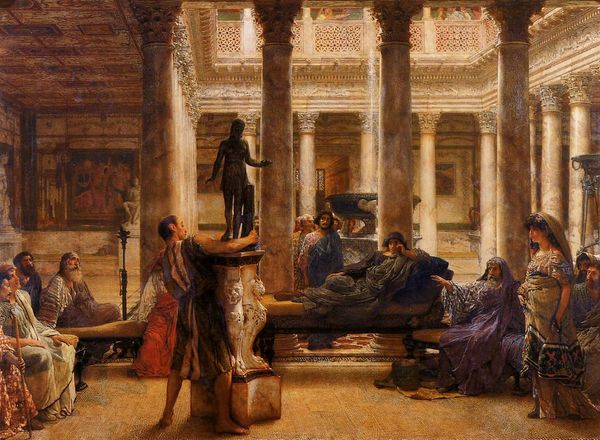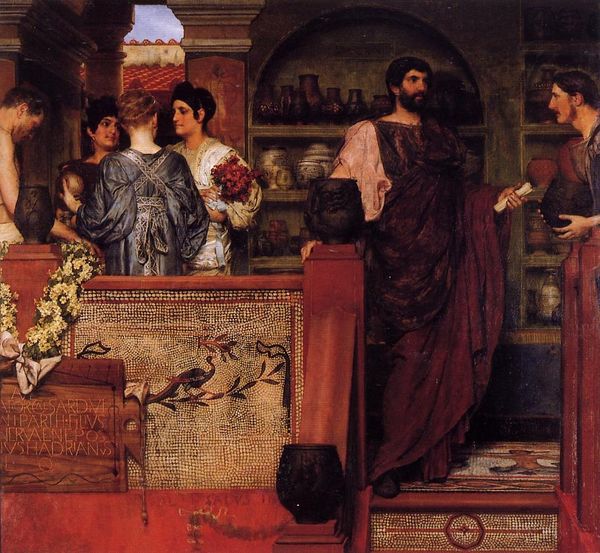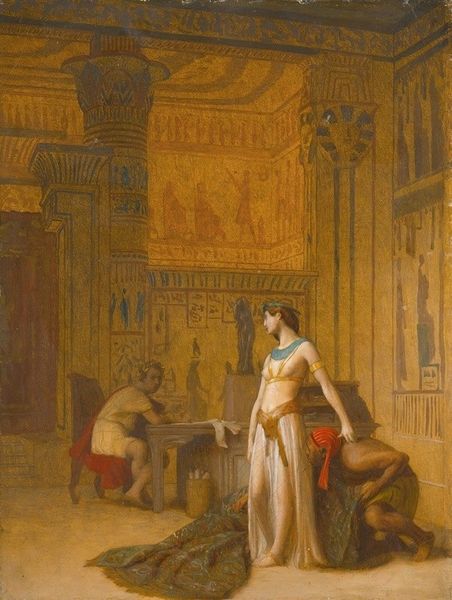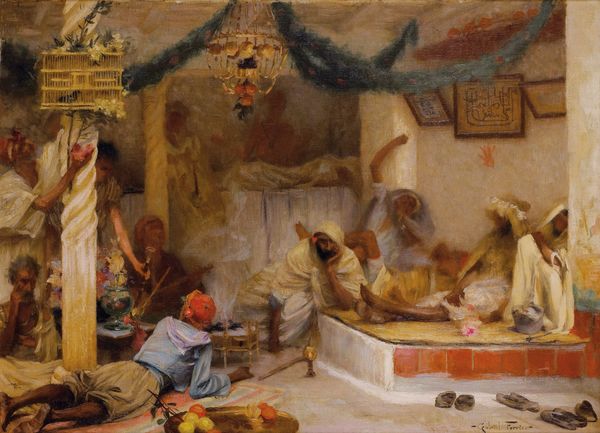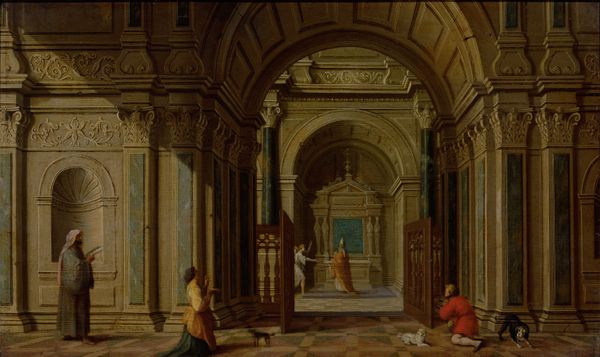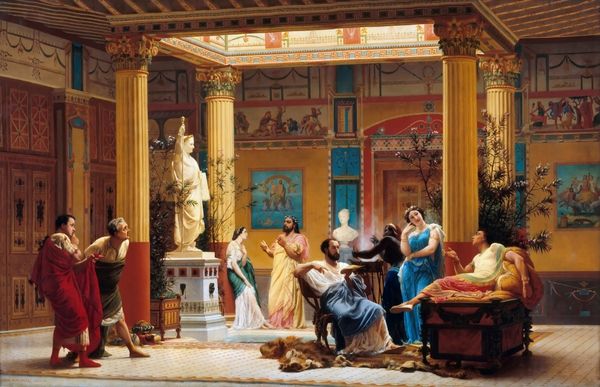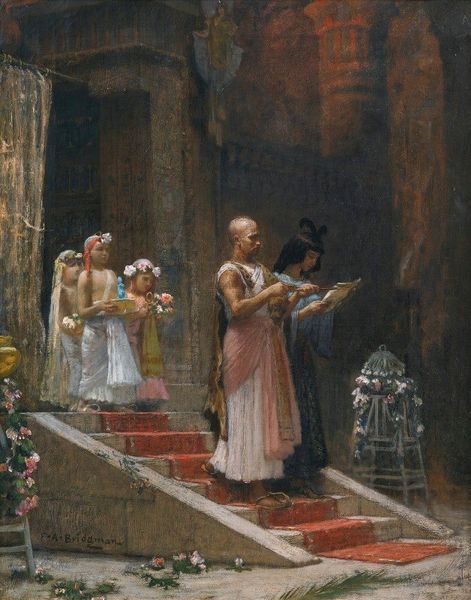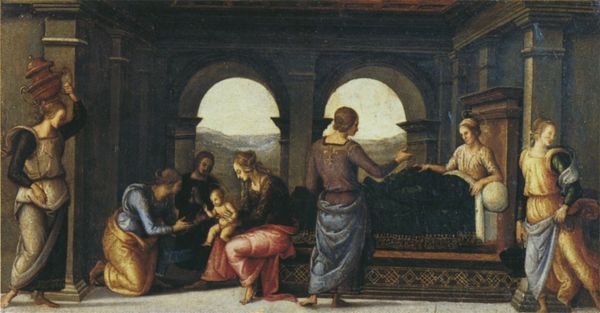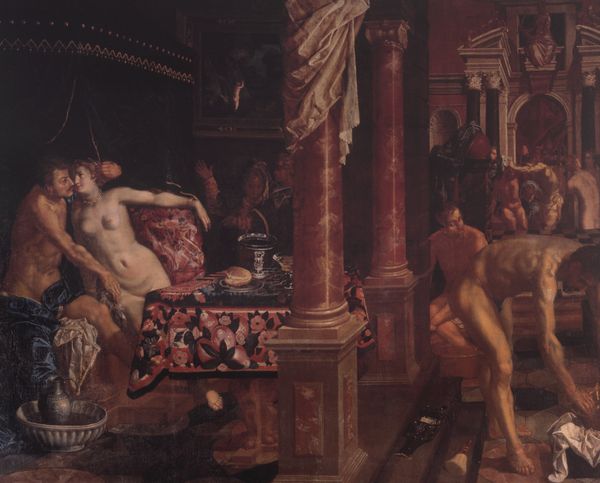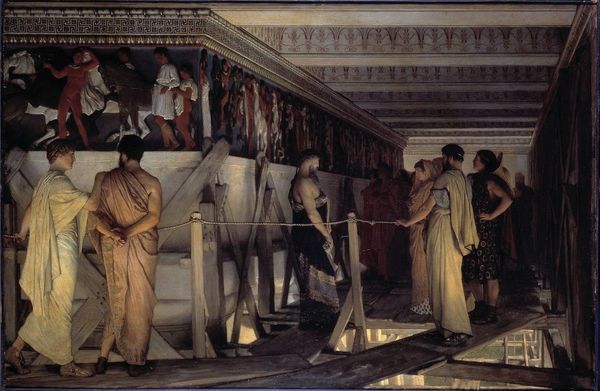
painting, oil-paint
#
portrait
#
figurative
#
neoclacissism
#
painting
#
oil-paint
#
greek-and-roman-art
#
classical-realism
#
painted
#
figuration
#
intimism
#
underpainting
#
urban art
#
genre-painting
#
history-painting
#
academic-art
#
mixed media
Copyright: Public Domain: Artvee
Lawrence Alma-Tadema painted this scene of ancient Roman life sometime in the late nineteenth century, when there was a fashion for classical subjects. Here, we see a performer entertaining a group of toga-clad men in a lavishly decorated courtyard. The architecture, the clothing, even the wall paintings are carefully researched to give the impression of historical accuracy. But what was the purpose of recreating the past with such detail? The Roman Empire was often seen as a model for the British Empire. Alma-Tadema’s paintings offered a glamorous vision of imperial power, suggesting that British rule was a natural successor to the glories of Rome. Today, art historians use a variety of sources to understand these kinds of paintings, from archaeological reports to the writings of contemporary critics. By placing art within its social and institutional context, we can better understand its role in shaping cultural values and beliefs.
Comments
No comments
Be the first to comment and join the conversation on the ultimate creative platform.
